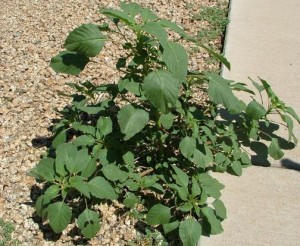The lecture by Joni Adamson on “Rethinking the Commons” was very intriguing. Adamson focused her lecture on what is considered “the commons” and how the word has changed drastically since it was first coined. “The commons” was first described as a type of resource or land used by the community but now in modern day use it is considered an overgrazed pasture. She described how environmental justice focuses not only on the environment but also social justice in literature. She explains how amaranth or pigweed is actually considered a very durable plant and has been quite resourceful for people during depressions. Adamson goes on to describe Monsanto, a corporation known for its agricultural biotechnology and its production of genetically engineered seeds.
Monsanto is notorious for its product, Roundup. This good is used for killing weeds and has been trying to used to try and destroy amaranth. Amaranth can now not be killed by Roundup and has essentially evolved into being impervious to that product. She uses an analogy with the closed fist vs. the open palm. Adamson used the closed fist to describe how industrial agriculture of which Monsanto is a part of as well as global capitalism treats life. The open palm described the indigenous cultures and communities and their way of thinking about life as a way to acknowledge how society views seeds and more generally the natural world. She described in her speech about how these two are very different and that it is true how these industrial agricultural corporations and global capitalism has completely changed the way the environment is treated as well as how society views it. Adamson was able to teach me that there are many different ways at looking how people view and treat the nature and the environment and it was quite interesting to be able to take a look at those different perspectives.


It’s amazing that a wild organism (Amaranth, aka pigweed) has been able to adapt over time and is now impervious to Roundup. Talk about natural selection at work! (Imagine: Darwin nodding in agreement). It also suggests that for all our meddling and attempts to control or manage life, wildness ultimately breaks free and has an agency that we can’t control. Of course, this is also a scary idea, like bacteria that evolve to be resistant to antibiotics. Thanks for bringing all this up in your post!